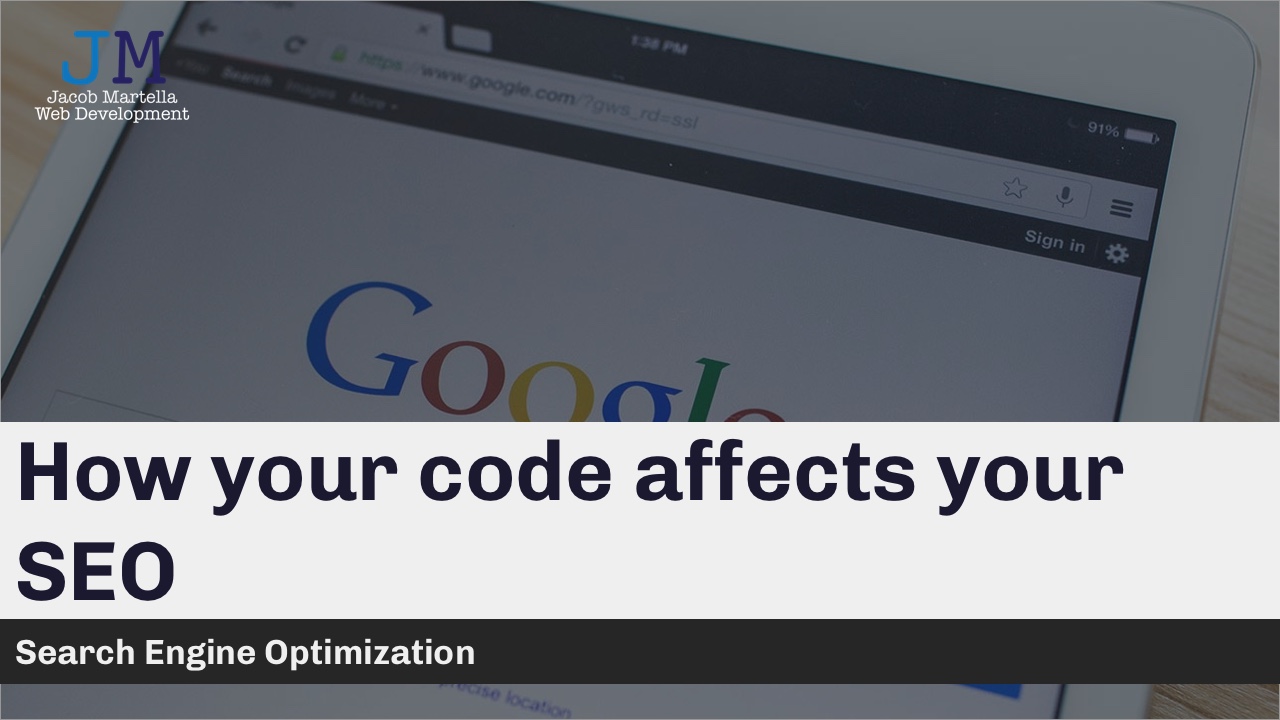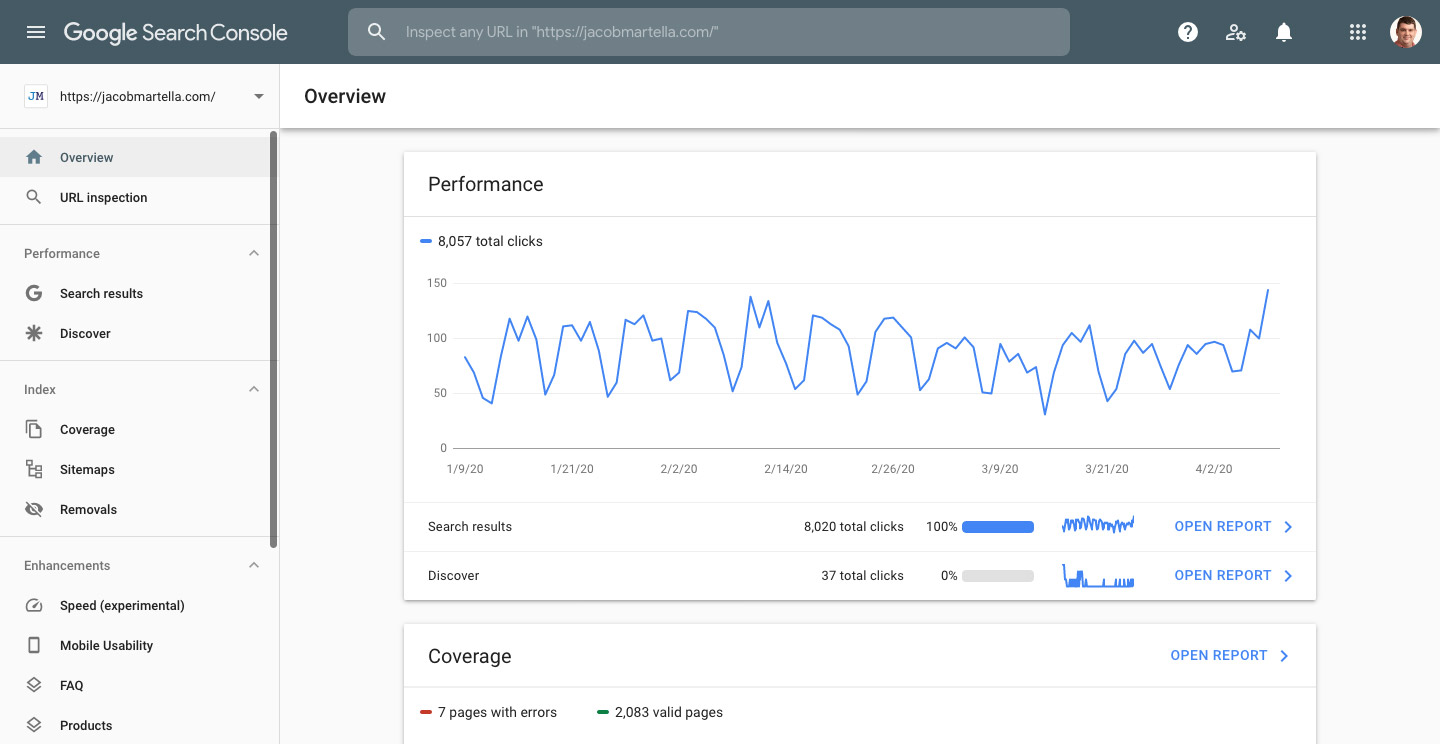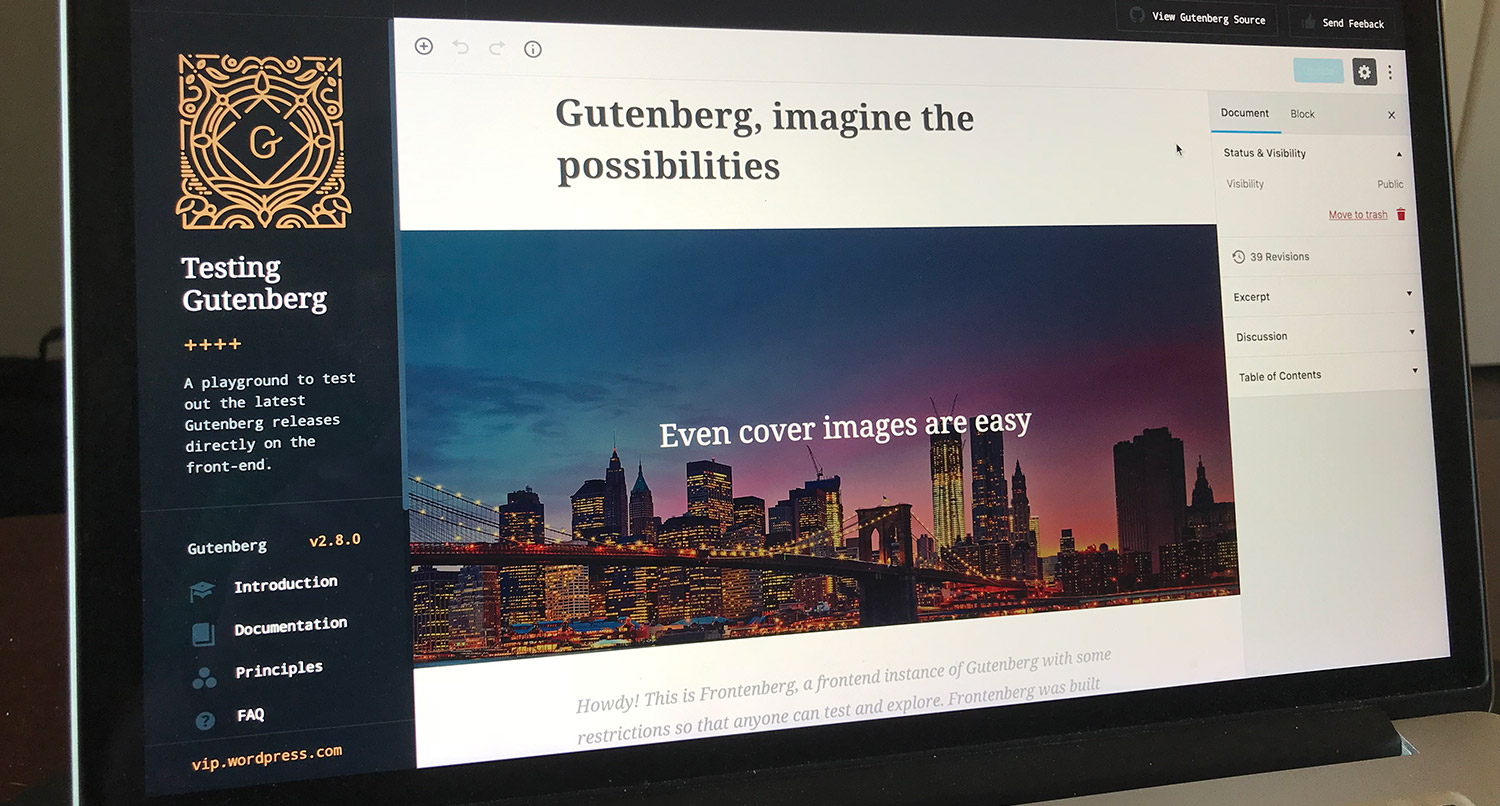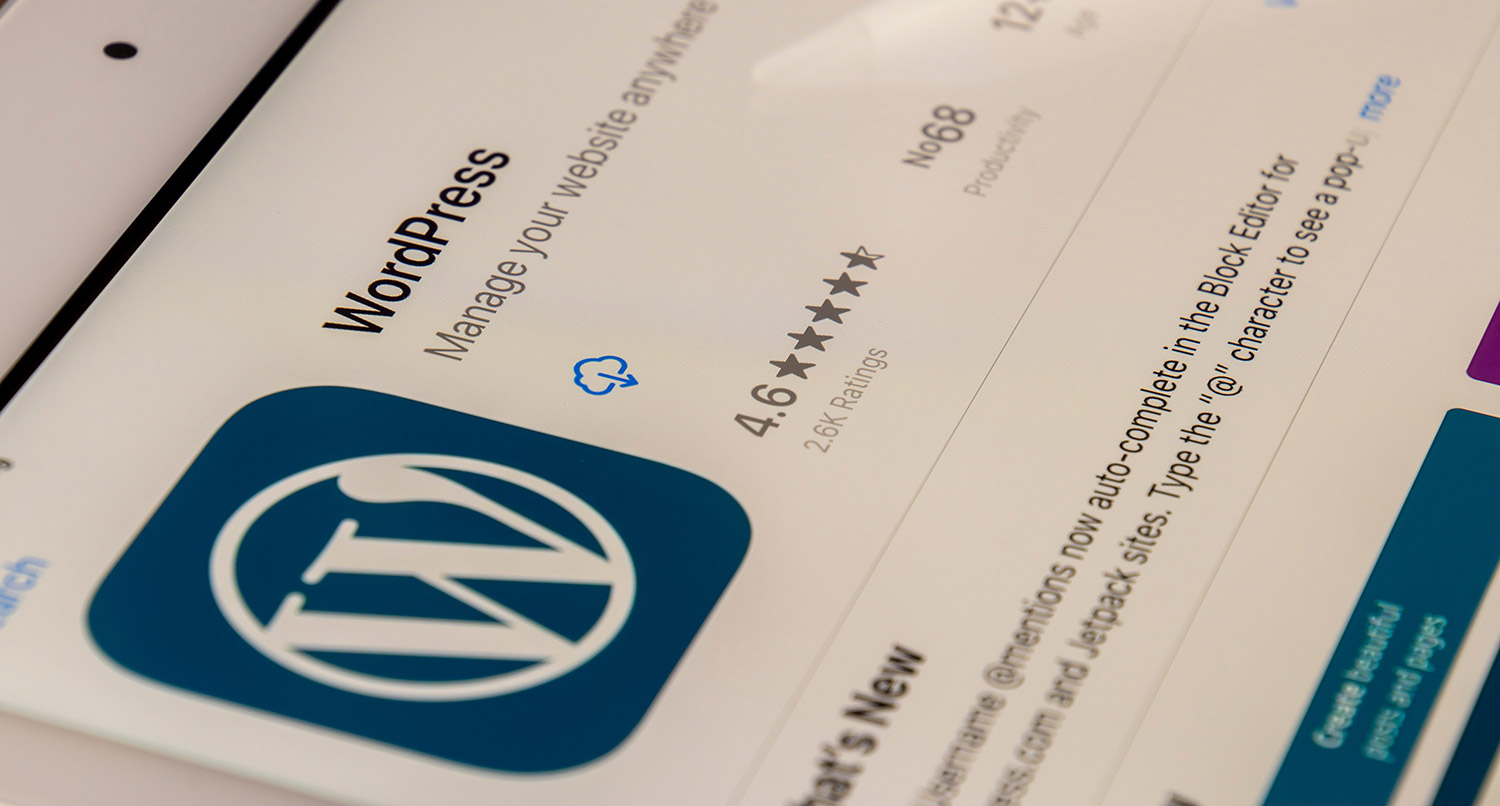It can be very tempting to start blogging for your small business. After all, isn’t anyone with a website blogging these days?
And there are very compelling reasons for wanting to blog. It shows fresh content to Google, it’s something you can post on your social media channels and it can help with SEO and content marketing.
But sometimes those positives can blind us to the potential downsides that come with a blog. This is something that’s going to take time. You might not actually have a lot of relevant content to write about. And is it actually going to help your business?
In the past I’ve been pretty adamant about how you should be blogging. I’ve previously felt that the positives far outweighed the negatives. But now that I’ve learned more, I’m not entirely sure.
So if you’re in that boat of trying to figure out whether you should be creating a blog for your small business, let’s go through the positives and negatives and questions you need to ask in order to figure out if this is something for you.
Why blogging can work for your business
There are a lot of reasons why blogging can be a big help with your small business’ digital marketing efforts.
First off, it’s great content that you can share out on your social media channels. You can direct people back to your website and hopefully to take some sort of action once there.
Also, well-written and well-planned content can be a big boost to your SEO. If you’re writing long, quality posts that each optimized for a keyword, search engines are going to like it. And if other people like it, they’ll link back to it which even furthers your SEO and page rank.
Plus, Google likes fresh content on websites. Even if you’re only blogging once a week or once every two weeks, it’ll recognize that your website is still active, which will help it in the rankings versus static website.
And finally, if you blog correctly and write great posts, people are going to see you as a thought leader in your industry. If you come across as a knowledgeable person in your writing and other content, people are going to respect your opinion. And you can build up trust with prospective customers and clients before they even meet you, which can make closing on a sale a little bit easier.
In short, there are a lot of positives to blogging.
Why blogging might not work for your business
But there are some costs to blogging for your small business.
First off, if your website isn’t set up for blogging (i.e. you have a static website with basic HTML pages or you use a basic version of Wix or Squarespace), you’re going to have to create that functionality. For this, you’re really going to want to use a content management system like WordPress, Drupal or Joomla to make everything easier to create and manage. And that might require either a new website or heavy additions to your current site.
Next, your industry might not be set up to have a lot of interesting content for you to write about and for others to read. Plumbing and electricity might not have as many interesting things and ideas to write about as compared to floral or woodworking shops. And if you run out of ideas early, it can really kill your blog’s momentum.
Finally, there’s the time aspect of this. Even if your website already has blogging capability, it’s still going to take a lot of time to write your blog posts. There’s researching and then writing and then editing and then making the post look beautiful and then publicizing it after you publish it. That’s a lot of work. And that’s time that you’re not running your business.
None of these are to completely discourage you from blogging, but they are things that you have to consider when you’re making the decision to blog or not to blog.
Figure Out What to Write About for your Blog
Do you already have a blog, but want to learn more about what you should be writing about? The WordPress Website Care plans can help you with that. The “One Step Ahead Plan” includes monthly content planning where we can sit down to figure out what posts are doing the best for you, research what keywords you should be aiming for and determine what you should be writing about. Plus, all of the plans come with Google Analytics set up so you can see in real time what posts are working for you. It’s the best way to stay on top of your blog!
Let’s Figure Out What to Write AboutDetermining if your business should be blogging
So, is blogging going to be a good fit for your business? Well, I can’t tell you that exact answer right now. But there are a few questions that you can ask yourself and your business to see if it’s a right fit for your business.
Do you have the time?
First off, you need to figure out if you even have the time to be blogging. Because trust me, blogging can take up a lot of your time.
Even if you’re just writing one blog post a week, there’s a lot of time that has to be involved in doing it right. First, there’s the time to come up with an idea that works and will be beneficial to your website. Then there’s the research aspect of it. After all, you want to make sure that everything you write is correct.
Plus, writing it will take longer than you think it will, even if you love writing. On average it takes me a couple of days (not straight through but over the course of the day) to write a blog post. A lot of that time is trying to figure out how to phrase things and really make sure that you, the reader, understand what I’m trying to convey.
Finally, there’s the editing aspect which is crucial. Typos and grammar mistakes can be painful to read. And if your blog setup requires any images or other pieces of content, that’s going to take some time as well.
And that time you spend researching and writing blog posts is time you’re not running your business. Just a heads up. And you probably have the time and/or you can make the time. But just know that going in so you can plan for it. And if you don’t have the time, that’s perfectly fine too.
Would your business benefit from being seen as a thought leader?
One of the things blogging can do for a business is place them as a thought leader in their area. If you’re writing good, quality articles and helping people learn, you can really build up trust with prospective customers before they need to make a purchase.
So, would your business benefit from people reading your blog and thinking of you as a thought leader in your industry?
In many cases, the answer is probably yes. If people read your thoughts about a topic related to a business and like what they read, they might be more inclined to purchase from you. It can build up a trust without them ever physically meeting you.
But sometimes there is no benefit. If you run a restaurant, the chances are pretty low that people are going to buy a meal from you based on a blog post. And if that’s the case, it’s just a waste of time working on a blog. Your efforts are better spent somewhere else in the marketing chain.
Get Insights on How to do a Small Business Website Right!
Are you looking to get some help with your small business’ website, but aren’t quite in a spot to take that next step? No worries! I’ve got you covered with a small business newsletter. This weekly newsletter will talk about a different subject related to websites and small businesses each week, as well as highlight blog posts that can help you out. This will help you optimize your business’ site as much as you can while you get yourself into a position to take the next step for your website.
"*" indicates required fields
Have you worked on other aspects of your website’s SEO?
Blogging is a big part of search engine optimization, but it’s not the biggest and it’s not the most important.
Instead, making sure your website’s code is written correctly to give you a good foundation, having good internal linking and checking to see if your current pages are SEO’ed enough for a keyword are your priorities.
If you haven’t already taken care of that, you’re better off using the time you would be blogging now to work on those problems. First and foremost, you need to make sure that your website’s code is helping your SEO. If it isn’t, then no amount of blogging is going to help your cause. So fix that first.
How your code affects your SEO
Next, you need to make sure your internal linking is correct. Do you have your menu set up in an easy to use and understand way. Are you making sure to link to all of your internal posts and pages so that no posts and pages are orphaned? Are you linking them in a way that helps Google figure out which of the pages is more important?
And finally, have you already maximized your SEO on your current pages, especially your landing, service, product and sales pages. Those pages matter way more than any blog post in the grand scheme of things, so they take priority as well.
Once you’ve done that, then blogging will be right for you.
Do you know what you can write about?
Finally, what exactly are you going to write about, anyway? At this point, you might be gung ho about blogging and writing and trying to drive traffic to your website. But what can you write about that relates to your business and what you do?
Now with what I do I have a lot I can talk about. From digital marketing to blogging to how to build a website to WordPress and more, there’s a lot that I can talk about and that people are, hopefully, going to find interesting. (And if they aren’t interesting, please let me know.)
But what if you’re a plumber. Sure, maybe a post about how to take care of your pipes in the winter is a good idea. But what about other posts? Are there topics that are not only something you can talk about, but also something other people are going to read? And are they things that can help convert people into potential customers and eventually paying customers.
If you can’t think of at least 10 to 15 high quality blog post ideas, then blogging probably isn’t in the cards for you. And that’s okay. Just make sure your current pages are optimized and focus your marketing efforts elsewhere to get people to your website. That will be a much better use of your time.
So before you blindly jump into creating a blog for your business’ website, take some time to think about it. Plan it out and figure out if it’s actually going to help your website and ultimately your business. If not, it’s probably a really good idea to focus your marketing efforts elsewhere.








